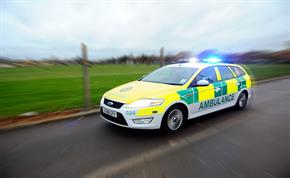Case study: diabetes

The following case comes from London Ambulance Service and is used to illustrate the need to consider the patient in a holistic manner, and not just from the aspect of their presenting symptoms.
The case
The crew arrive to find a 44-year-old insulin dependent diabetic (IDDM) man with multiple complications of his disease, including renal function compromise, visual problems and neuropathy resulting in relative immobility. He had developed vomiting which was quite severe, preventing him from keeping food or drink down. The vomiting continued for two days and resulted in his partner calling 999. The crew assessed the patient thoroughly and attributed his vomiting to food poisoning.
His observations were as follows:
- Respiratory rate: 18
- Oxygen saturation: 98%
- Blood pressure: 146/95
- Temperature: 37.7
- GCS: 15
- Pulse: 108
- Blood sugar: 18.9
His examinations were unremarkable and he was not in obvious pain. His abdomen was soft and non-tender. A decision was taken not to convey and he was advised to drink water and that this may be a short lived infection. Throughout the night he developed pain and this continued along with the vomiting. A second 999 call was made and a solo-responder paramedic attended, recording similar findings on measuring physiological parameters and checking the abdomen.
The patient’s blood sugar had increased to 19.1. The paramedic made a decision not to convey; advised the patient to take fluids and reassured him that this would probably settle within 24 hours.
A third ambulance was called late evening, which then transported the patient to hospital; he was admitted to the emergency department with diabetic ketoacidosis (DKA).
Learning points
- This patient was an insulin-dependent diabetic with renal problems and high blood pressure. His likelihood of developing DKA was high and indeed, his vomiting may even have been due to that.
- Both vomiting and abdominal pain can be linked to DKA.
- The absence of diarrhoea made this unlikely to be food poisoning.
- The concern in a patient with impaired renal function is that dehydration is less well tolerated and can further damage the already struggling kidneys.
- Enquire (and document) as to whether the patient is taking their insulin as prescribed, as this is an absolute requirement for this group of patients.
An overview of this patient reveals a man who is relatively young but has quite advanced IDDM. This should have driven the decision to convey him on both the first and second call.
Further information can be found on the London Ambulance Service website.
Article body fully credited to London Ambulance Service NHS Trust.
